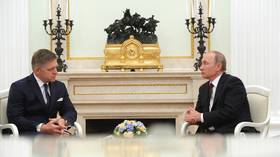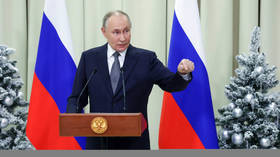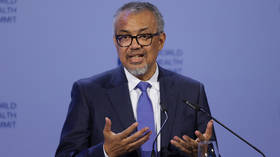Oil price fall: ‘Nobody will be a winner’
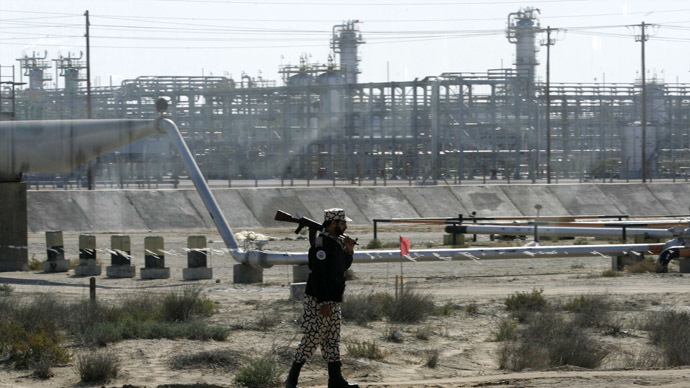
Refusing to cut production OPEC is planting the seeds of a future oil crisis where global consumption will overtake a global production, Dr. Mamdouh Salameh, consultant on oil and energy at the World Bank told RT.
RT:The Saudi oil minister, Ali al-Naimi, said oil prices will inevitably rebound. Do you think they will?
Dr. Mamdouh Salameh: I think the prices are going to rebound, and they are going to recoup most of the losses, if not all of them by the second half, by the first half of next year. And I say that because the oil market cannot reconcile itself for a long while of low oil prices. It is damaging to the global economy, it is damaging to the global oil industry, and it is damaging to the economies of the Arab Gulf region countries as well as to Russia, and Iran, and many producers in the world. Of course, it affects international investment worldwide, particularly in oil and energy. For these reasons I think the price will rebound.
RT:The minister also said that Saudi Arabia won't be cutting production even if prices fall as low as US$ 20. What could be behind this stance?
MS: OPEC with the encouragement of Saudi Arabia made a blunder took the wrong decision vis-à-vis not cutting oil production. OPEC has a responsibility to the world and to the oil price because they account for 40 percent of production. If they had taken the right decision and cut their production, I am sure Russia would have coordinated with them and cut production by up to half a million barrels a day. And Mexico would have joined them as well by cutting 300,000 barrels a day. OPEC did not take the right decision and they are blaming everybody else now. I recommend that they should convene urgently and try to rectify the decision by cutting their production by at least 2 million barrels a day, so as they can reverse what is called the glut in the market.
RT:Why aren’t the Saudis doing the “right thing”? Maybe there is some speculation or some political motives behind this against Russia and some other countries as well. Also maybe this is about fracking - we are going to see fracking in the UK and in the US. That would be a threat to the Saudis, wouldn’t it?
MS: Yes it is, because it is a wrong decision that OPEC has taken. It will cost them a huge deficit in their budget. It is not only Russia and Iran who will suffer. Everybody will suffer including the global economy and even the US shale oil production. Nobody will be a winner. For a short while the consumers of oil will benefit but eventually the global consumption will overtake a global production, and that will push the price up. I am sure they are planting the seeds for a future oil crisis. OPEC has to cut its production without the price going down or sliding to $50 a barrel. Nobody will be a winner at all. The global economy will be a big looser.
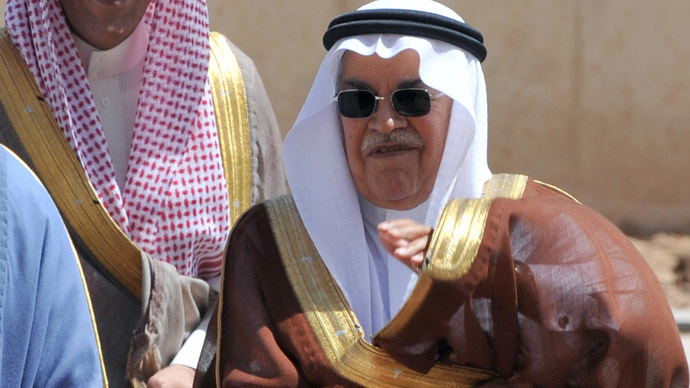
RT:The Saudi oil minister says a fair price is about 70 dollars a barrel. Is that a level we can expect to see in the near future?
MS: As I said the price could go down to $50 [a barrel] but if OPEC cuts production right away by 2 million barrels joined by Russia, Mexico, and other producers I am sure that the price will start to climb up. I am projecting, I am sticking my neck out by projecting that the price will rebound and will recoup most of its losses by the first half of next year. So achieving $50-70 a barrel will not be a problem but that price is not good for the Russian economy, it is not good for the Iranian economy, it is not good for the Arab Gulf economies. I think a sustainable price for the global economy…should be $100-110 a barrel. That will satisfy producers and enable them to expend production capacity and it is good for the global economy in terms of investment and good for the global oil industry.
Three-way oil war: OPEC vs. Russia, vs. US
The oil prices can go as low $45 per barrel, argues Martin Katusa, economist and author of the ‘Colder War’.
In his view, “we’ll see a near term recovery going into February but then again we’ll have more pressure because the reality is: the supply is exceeding the demand globally.”
RT:What do you think could fuel the bounce-back the Saudi minister mentioned?
MK: They have got a much longer term perspective than the day-to-day market. What they are stating is that they believe in the growth of the emerging markets led by China. So that is essentially what he is focusing on that eventually the growth in China will cause the demand to increase.
RT:The Saudi oil minister said his country isn't going to do anything about it, even if the prices fall to $20 a barrel. That doesn't bode well for Russia, does it?
MK: No, but it is worse for the American shale producers. Saying a comment like that [by Ali al-Naimi, The Saudi oil minister] what they are trying to do is to tell the market that there is a three-way oil war here: OPEC versus Russia, versus the North American shale sector. And most of the growth globally has been in the North American shale sector that is not OPEC growth. So Saudi Arabia is leading OPEC saying they are not going to cut production. Russia has increased its production, and the shale sector in North America is still increasing week over week. We still got some more pain here in the near-term.
The statements, views and opinions expressed in this column are solely those of the author and do not necessarily represent those of RT.
The statements, views and opinions expressed in this column are solely those of the author and do not necessarily represent those of RT.


